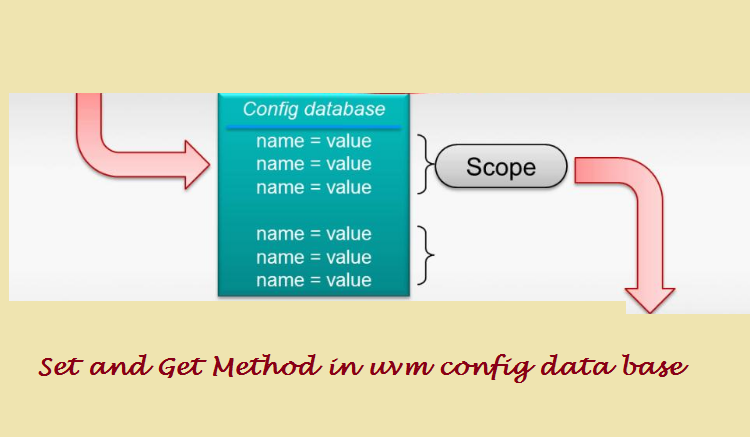UVM config DB
The configuration database provide access to a centralized database where type specific information can be stored and received. config_db can contain scalar objects, class handles, queues, lists, or even virtual interfaces.
The database has both a name table and a type table and each resource is entered into both. Resources are stored in a database so that each resource can be retrieved by name or by type, and database is globally accessible.
//Class definition
// This is not exact type of UVM or OVM config data base class definition
// This is just to show UVM , OVM config base can be written written
// This class is generated using static method and use of associative array !
uvm_config_db::set and uvm_config_db::get methods are used to store and retrive the information from database respectively.
class uvm_type_of_config_db #( type T =int)
static T db[string]; // static associative array
static function void set(input string name, input T value)
db[name]= value;
endfunction
static function void get(input string name , ref T value);
value= db[name];
endfunction
static function void print();
$display(“Configuration databse %s”, $typename(T));
foreach(db[i])
$diaplay(“db[%s} =%p”,i,db[i]);
endfunction
endclass
We will see example here , how do we use above class
class Dv_testing;
int i,j;
endclass
int i=2;
int val;
real pi=3.14;
Dv_testing dv;
initial begin
//calling set method
uvm_type_of_config_db#(int)::set(“i”,i);
uvm_type_of_config_db#(real)::set(“pi,pi);
dv=new()
dv.i=8;
dv.j=6;
uvm_type_of_config_db#(Dv_testing)::set(“dv”,dv);
//calling get method
uvm_type_of_config_db#(int)::get(“i”,val);
$display(“Value get return of i is %0d”,k); // val value is 2
uvm_type_of_config_db#(int)::print();
uvm_type_of_config_db#(real)::print();
uvm_type_of_config_db#(Dv_testing)::print();
end

